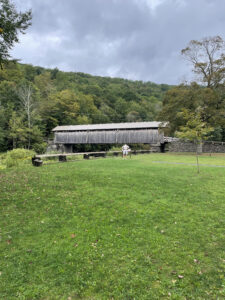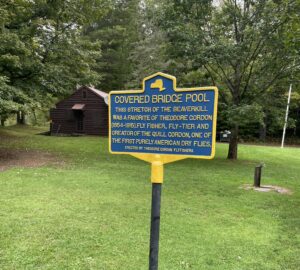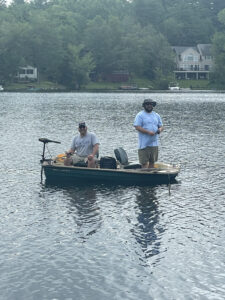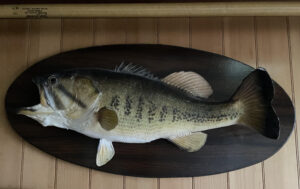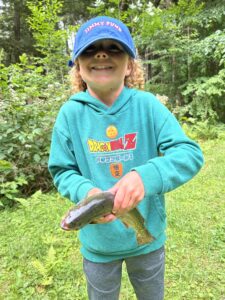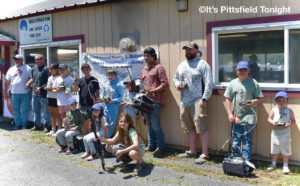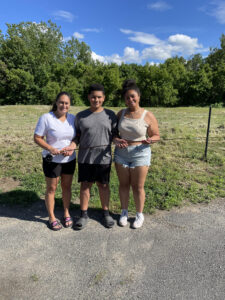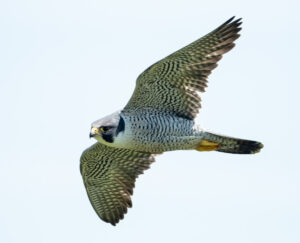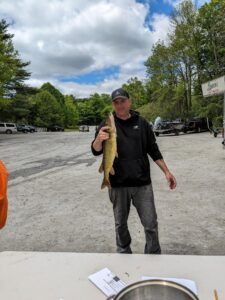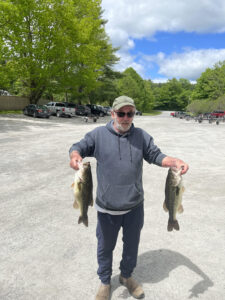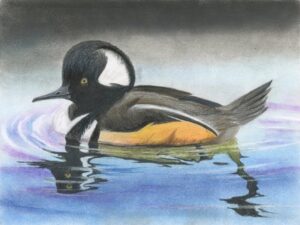An Act Modernizing Firearm Laws
In announcing the passage of the above Act, Governor Healey wrote that this legislation updates our firearms laws in response to the Supreme Court’s misguided Bruen decision, that it cracks down on ghost guns and 3-D printed weapons, bans firearms in additional public spaces like schools, polling places and government buildings. It expands the 2018 “red flag” law to allow school administrators and licensed health care providers to petition a court to temporarily take firearms away from someone deemed a threat to themselves or others. It also includes new penalties for possession, creation and transfer of untraceable guns. Some of those components of the law are things that hunters and target shooters could support, but, unfortunately, it doesn’t stop there.
The following is based upon interpretations by the Gun Owner’s Action League (GOAL), the Massachusetts Conservation Alliance, the Sportsmen’s Alliance and others. Please bear in mind new interpretations are coming in daily.
There will be a complete prohibition for MA Firearms ID (FID) card holders, regardless of age, from owning, possessing, purchasing or transferring rifles and shotguns that are large capacity or semi-automatic (even rimfire) firearms. Hunters will be allowed to hunt with semi-automatic shotguns if they have a valid License-to-Carry (LTC) and the firearm is on the approved roster. Youth hunters can hunt with a semi-automatic shotgun, under the supervision of an adult that has a valid LTC.
As for holders, the new semi-automatic laws are very expansive and there are several sections that must be referenced in order to determine what is banned and who is banned from possessing them.
The new law appears to give full authority to the Executive Office of Public Safety and Security to amend the rosters for any and all firearms including semi-automatics. We won’t know what will be approved or banned for some time
There are no exemptions for rimfire in the assault weapon law. (Rimfire cartridges are typically low-powered and small-caliber, traditionally .22 rifles. Large capacity feeding devices do not include .22 rimfire tubular magazines.)
There has been no information yet regarding buy backs or confiscation.
Under the new laws, any muzzleloader that utilizes modern ammunition components and/or can be readily converted to accept a modern cartridge or barrel (for example) will now require a LTC or FID.
Non residents are no longer exempt from possessing handguns and/or semi-automatic firearms for competitions or hunting. It bans youth non-resident hunting (under 18). All firearms entering the Commonwealth for any purpose other than traveling through must be registered prior to them entering. For people who have moved into Massachusetts, it is possible that they will have to report all transfers since they have been living in Massachusetts.
UPS, FedEx, etc. must comply with storage and transportation laws. Trigger locks and other devices do not appear to have been changed.
There are new training requirements which were projected to take effect on August 1, 2024. There appears to be some training that was grandfathered which includes any license issued on or before August 1, 2024 and for all renewals. Only new applicants must do disengagement training and live fire training. There are many new requirements for the new training curriculum. The Colonel of the State Police, in consultation with the Municipal Police Training Committee, shall create a new training curriculum. It must include: injury prevention, suicide prevention, disengagement tactics, live fire and completion of a written exam.
Is there any doubt as to why GOAL announced a referendum effort to repeal this gun law? A referendum petition is used to have a law that was recently enacted by the legislature to be repealed by the voters. You can find out more about that on the GOAL website.
The new law is 116 pages long and there may be other aspects of it which could be mentioned in future columns. But for the next two weeks, this column will cover a different subject matter.
Berkshire National Fish Hatchery events
On Saturday, August 10, two events will be taking place at the Berkshire National Fish Hatchery in Monterey/Hartsville.
Running from 9:00 to 10:30 a.m. the Friends of the Berkshire National Fish Hatchery will be having their monthly kids fishing derby. Bring your children ages 13 and under so that they can learn to fish and compete for prizes. No child goes away empty handed. Its free and there will be free derby shirts for the kids.
Following that, from 10:30 a.m. to 12:30 p.m. they will have an Open House where visitors have an opportunity to explore the fascinating facility, take guided tours and learn about the amazing work they do to support local fish populations and their habitats.
Enjoy complimentary hotdogs, chips, and watermelon during the Open House. T-shirts, hats, and sweatshirts will be for sale under the tent and a raffle drawing for a Traeger grill smoker. There will be fly casting for adults with a chance to win a bottle of gin from Berkshire Distillery with the hatchery logo on it
Fly Fishing Clinic
On August 9, Jim Lagacy, Aquatic Resource Education Coordinator, invites you to join MassWildlife’s ‘Fly Fishing 101’ clinic to learn how to get started in this wonderful pastime. They will take the romance and mystery out of this age-old technique and show you that fly fishing is just another tool in your fishing arsenal. From the necessary equipment needs, essential knots, how to rig up your fly rod and reel outfit, and how to cast, as well as some commonsense tips and techniques to get you started.
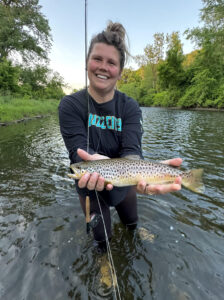
Kendelll Wojtkonski with a nice brown trout out of the Housatonic River in Lee., MA Picture taken by her fdad, Craig Smith.
After an introductory lesson, participants will be able to fly fish on Reynolds Pond (45 Fred Mason Rd, Cheshire) with help from local fly anglers and MassWildlife staff.
The free clinic is designed for beginner fly anglers (age 15+). Bring your own fly-fishing gear or borrow theirs. Space is limited, so pre-register at HTTPS://massfishhuntevents , # 4331, ASAP.
Family Fishing Clinic
On August 10, Lagacy invites you to join them for a free, family friendly, learn to fish clinic at Upper Highland Lake in the DAR State Forest, in Goshen, from 9:00 a.m. to noon. Bring your fishing equipment or borrow theirs; limited equipment and bait will be provided.
When you arrive, instructors will cover the fishing basics with the balance of the time spent fishing. This class is designed for adults and families; participants ages 14 and younger must be accompanied by an adult.
Free and open to the public, pre-registration is required. HTTPS://massfishhuntevents 4332, ASAP.
American Museum of Fly Fishing Festival
On Saturday, August 10 from 10:00 am to 4:00 pm, the AMFF’s 16th annual free Fly-Fishing Festival will take place rain or shine on the museum grounds in Manchester, Vermont. This is its signature event of the summer, featuring a unique collection of vendors, including painters, appraisers, industry artisans and professionals, and other angling-related nonprofits. You are invited to enjoy fly tying and casting demonstrations, try your hand at casting vintage rods, learn how to tie a fly, and mingle with like-minded people as you share the joy of the great outdoors.
Join them throughout the day for a wide array of activities, including presentations, competitions, and demonstrations. The schedule of events is as follows:
11:00 am: Casting competition
12:00 pm: Saltwater Casting Seminar with AMFF Ambassador Kyle Schaefer
1:00 pm: Meet the Artist: C.D. Clarke
2:00 pm: Art Workshop with AMFF Ambassador Rachel Finn
3:00 pm: Raffle drawing at admissions tent
Happening all day: Tackle appraisals with Bob Selb, Fred Kretchman, and Carmine Lisella,
casting lessons with AMFF Ambassador Kyle Schaefer, vendors and non-profits, fly tying demonstrations, casting the classics, local food and beverage trucks, children’s activities
explore multiple exhibitions in the museum galleries, music by Shannon Roy, free museum admission all day.
Hoosic Riverfest
You are invited to join the Hoosic River Watershed Association (HooRWA) and the Taconic Chapter of Trout Unlimited on Saturday, August 17, from 11:00 a.m. to 2:00 p.m. for RiverFest.
Attend a workshop on fly tying, fly casting, macroinvertebrates and/or wild edible plants. Listen to river-inspired music and poetry, see demos on water quality monitoring, get to know the species that live in the river, and even participate in a river clean-up which runs from 2:00 to 3:00 p.m.
This event is free and open to the public. The rain date is Saturday, August 24.

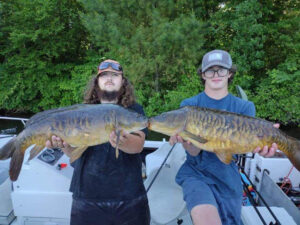
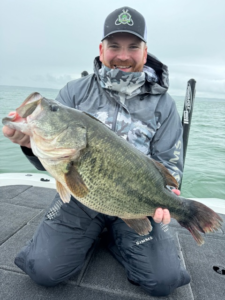 James Bitenbaugh.
James Bitenbaugh.
